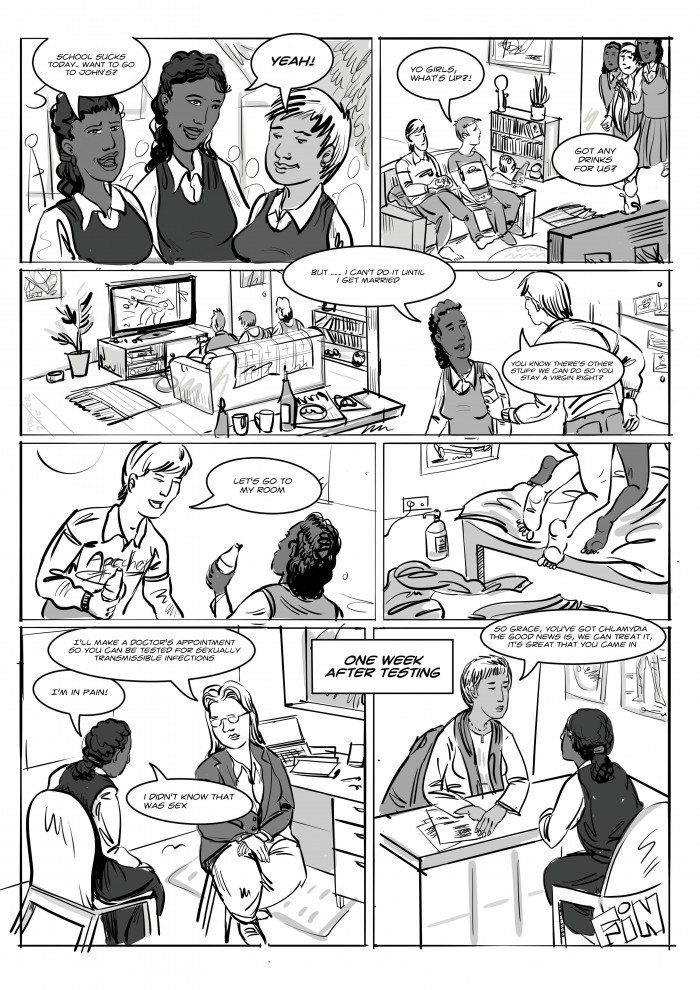Sexually transmissible infections can be caused by bacteria, viruses or parasites and can be passed on from one person to another during sex.
Depending on the type of STI, STIs can be passed on through:
- Skin to skin contact
- Sexual fluids, like from the vagina, penis or anus
- Blood to blood contact
Some people with STIs may feel well for many years before the infection affects their health, but they can still pass on the STI to other people, even if they feel well.
To reduce the risk of passing on an STI or from getting an STI, it is important to always use condoms or dams and lubricant when having any kind of sex, and to never share sharp objects like needles (from tattoos or injecting drugs) or razors or personal hygiene items like toothbrushes.
Different STIs affect your body in different ways, the most common symptoms of STIs are:
- Discharge from penis, vagina or anus
- Pain in the genital area
- Itching in the genital area
- Fever or flu-like symptoms
- Warts, rashes, blisters or sores in the genital area
- Pain when urinating (weeing) or during sex.
The most common STIs are:
- Chlamydia
- Genital Herpes
- Genital Warts – HPV
- Gonorrohoea
- Hepatitis B
- HIV
- Syphilis
STIs can be treated, and many can be cured, however, some STIs can do permanent damage to your reproductive organs, which cannot be reversed. It is therefore important to have regular STI testing at your doctors.








 SHARE
SHARE